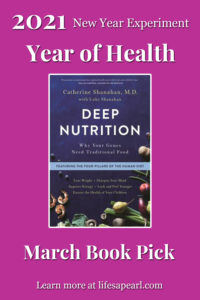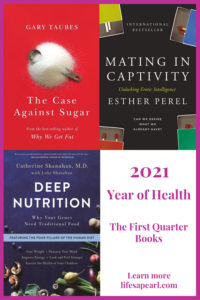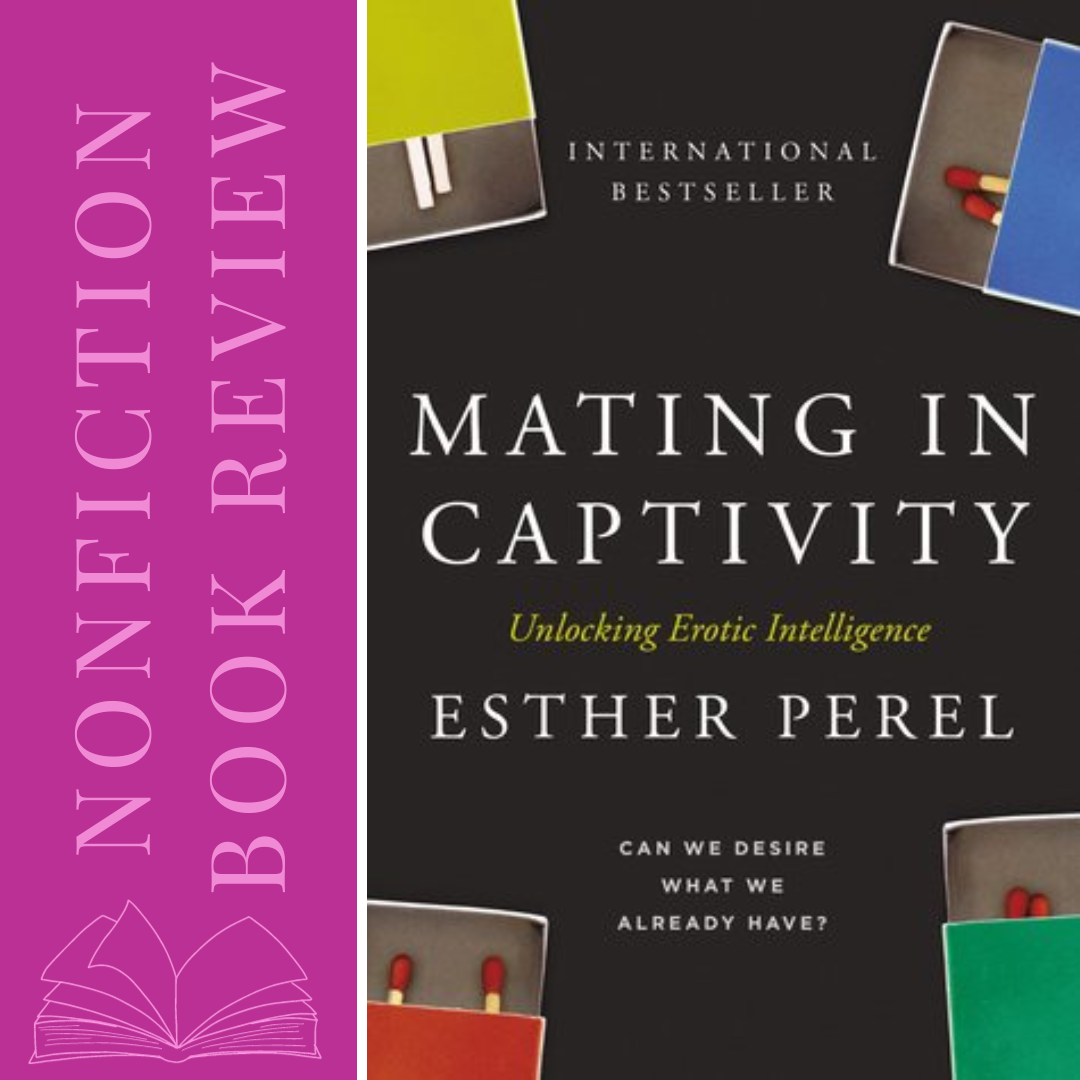This year instead of making New Year resolutions that I often don’t keep for long, I’m experimenting with a year of health.
Each month I choose one health topic like nutrition, sleep, or stress management to focus on. I pick a nonfiction book to read on the subject. I try to finish that in the first half of the month so I can implement what I’ve learned in the second.
February Topic: Domesticity and Desire
I’ve been intrigued by Esther Perel’s work since seeing her Ted Talk, The secret to desire in a long-term relationship, back in college. Her book, Mating in Captivity: Unlocking Erotic Intelligence, has been sitting on my kindle for years. With February’s focus on romance and love, it seemed like the perfect month to finally get into it!
In the modern world, couples often expect their partner to fulfill all their needs from friend to confidante to lover. Perel writes, “Today, we turn to one person to provide what an entire village once did: a sense of grounding, meaning, and continuity. At the same time, we expect our committed relationships to be romantic as well as emotionally and sexually fulfilling. Is it any wonder that so many relationships crumble under the weight of it all?”
Her work explores the struggle modern couples face to hold onto sexual desire for each other within the domestic reality of everyday life. Perel argues that good sex is based on two conflicting needs, security and surprise. She looks at ways couples can make space for mystery and distance to keep passion alive.
Review: Mating in Captivity by Esther Perel
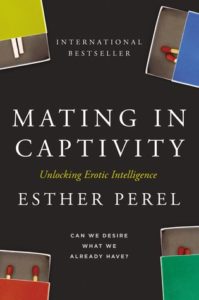
Mating in Captivity was a fascinating read. While I didn’t come up with a way of implementing it in my life for the second half of the month, the concepts were something I kept playing over in my mind.
I especially continued to think about the many dichotomies Esther Perel points out are at play in modern relationships. Things like mystery and familiarity, work and play, spontaneity and stability, or togetherness and separateness. All these eventually lead back to the conflict needs of security and surprise to promote eroticism.
The book is broken down into chapters focusing on a category of erotic struggles. Within each chapter are sections sharing insights Perel has formed after 20 years of experience as a therapist. She also touches on experiences within the therapy sessions of couples exploring that issue.
The Most Interesting Takeaways:
- Perel discusses how in modern society we’ve lost so many of our connections like extended family, community, and religion. This has given us more sexual freedom. It’s also taken away our sense of belonging, social support, meaning, and order. She writes, “We are freer, but also more alone.” It’s created the situation where we turn to our partner for the security and emotional connection that used to be provided by many.
- Couples invest more in love now than any time before. Sadly, the current model of love and marriage is behind the large rise in divorce rates.
- Modern couples have confused love for merging which has a negative effect on sexual desire. Eroticism needs separateness.
- One chapter digs into college age adults and how they view and experience sex. Her research reminded me of Girls & Sex by Peggy Orenstein. They share similar revelations, including how a culture of drinking allows the social lubrication to hook up in the name of being sexually liberated while avoiding emotional involvement at all costs. It’s a game of who can care the least. Often even if one person is interested in more, they won’t broach the topic for fear of rejection or appearing weak.
- The section I found most fascinating was “Parenthood: When Three Threatens Two”. One couple struggled because the mother had unconsciously transferred her need for touch to her kids rather than her husband. Not in an inappropriate way, but so that she no longer had a drive for sex at all. With another couple, the husband had always put his own mother on a pedestal. Now that they were married and his wife was a mother, he could no longer bring himself to be intimate with her in the way they were before.
Quotes from Mating in Captivity:
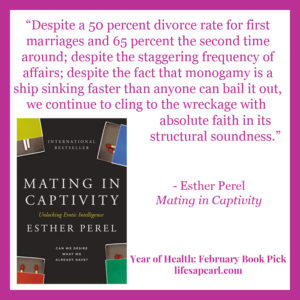
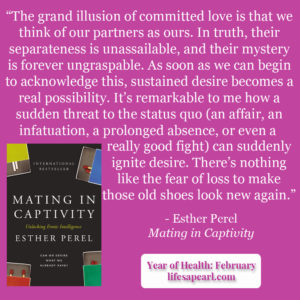
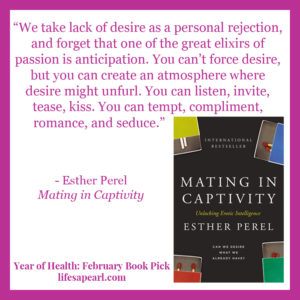
Final Verdict:
As mentioned before, I didn’t really identify any concrete takeaways to apply to my life in this book. I do continue to think about these insights into modern couples operating within the current relationship model and set up of society. That consideration and just being aware of the dichotomies at play and issues that can develop may be helpful.
Another blogger reminded me of Esther Perel’s podcast, Where Should We Begin. On that podcast she shares audio files of therapy sessions. The episodes feature a variety of couples struggling with all sorts of issues in their relationships and marriages.
I have listened to a few but don’t always find them relatable for me right now. However listening to the questions she asks, how she helps couples frame conversations, or just clarify their communication could be helpful to understanding further ways to dig into this topic.
I’m also excited to check out her second book, The State of Affairs: Rethinking Infidelity. I also plan to look into a few of the books she recommends, like Sexy Mamas by Cathy Winks.
Book Pick for March
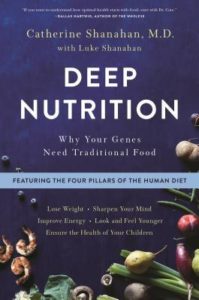
March is National Nutrition Month so it seemed like a great month to get into one of my favorite health topics, nutrition! I find the new research and studies endlessly interesting. Perhaps because it’s something that we actively control with what we choose to put into our bodies on average three times a day.
I first heard about the book, Deep Nutrition by Dr. Catherine Shanahan, on an episode of the Wellness Mama Podcast. I remember being both fascinated and terrified by the idea that what we eat affects our genes and therefore our future children and even grandchildren.
She discusses the latest discoveries in epigenetics and explains how food we eat gives our genes information to direct cellular growth. Dr. Shanahan examined known diets for vitality and longevity from all around the world. She identified four common nutritional habits among them, calling them the four pillars of world cuisine – meat cooked on the bone, organ meat, raw plant and animal products, and fermented and sprouted foods. In Deep Nutrition she shares a prescriptive plan for “The Human Diet” to help everyone live long healthy lives.
Do you consider relationships to be part of your health? What books on marriage or relationships do you recommend?
